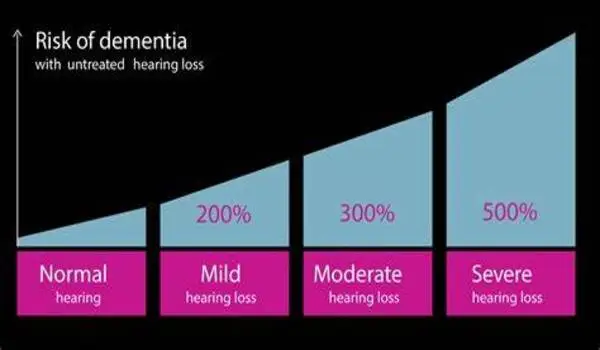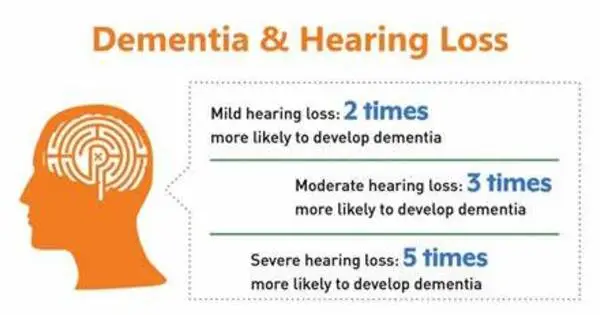Researchers discovered a correlation between hearing loss and the onset of dementia in a recent study that included data from 573,088 people. This is the largest study of its sort to date. People with hearing loss expend more energy listening. Other cognitive functions suffer as a result of this extra energy. Cognitive functions are the mental processes in the brain that allow us to think and solve issues.
Researchers from the Department of Clinical Research at the University of Southern Denmark discovered a link between hearing loss and the development of dementia in a recent study that included data from 573,088 persons. This is the largest study of its sort to date.
There is already an increase in the number of people with dementia. This is mainly due to the ageing of the population as a whole, but there are also other risk factors, such as lifestyle and hearing.
“Previous studies have suggested that there could be a link between hearing loss and dementia. Our study is larger than the previous studies, and we have demonstrated a link between hearing loss and dementia, “says Assistant Professor Manuella Lech Cantuaria from the Department of Clinical Research at the University of Southern Denmark.
We discovered that people who did not wear hearing aids had a 20% higher risk of developing dementia than people with normal hearing. Hearing aid users had a 6% greater chance of acquiring dementia. This suggests that wearing a hearing aid can prevent or delay the development of dementia.
Manuella Lech Cantuaria
Good news for hearing aid users
According to the study’s findings, those with hearing loss have a 13% higher risk of acquiring dementia than people with normal hearing. People with significant hearing loss are more at danger. The researchers also looked into if there was a difference in risk based on whether people wore hearing aids or not.
“We discovered that people who did not wear hearing aids had a 20% higher risk of developing dementia than people with normal hearing. Hearing aid users had a 6% greater chance of acquiring dementia. This suggests that wearing a hearing aid can prevent or delay the development of dementia,” Manuella Lech Cantuaria explains.

About the study
The study is a so-called cohort study that follows a group of people with common characteristics over a longer period of time. In this study, all of the people were above 50 years of age and from the Region of Southern Denmark between 2003-2017. People diagnosed with dementia before the commencement of the study were excluded. The researchers compared data on people’s hearing with data on the development of dementia during the period. The researchers have found a significant – that is, clear – correlation between hearing loss and the development of dementia.
- The greatest risk of developing dementia was especially seen in people with severe hearing loss
- Hearing loss causes a 7% increased risk of developing dementia
- People with severe hearing loss have up to a 20% increased risk of developing dementia compared to people without hearing loss
Hearing loss and dementia
(1) Hearing loss — a national scourge
Hearing loss affects around 800,000 Danes. And that number is only expected to rise in the future as we become older and are subjected to increasing amounts of noise. Decibels (dB) are used to measure hearing loss. There are several levels of hearing loss. Hearing loss exceeding 60-70 dB, for example, indicates you can’t understand normal speech. Above 90-100 dB, you won’t be able to hear shouting.
(2) Dementia
Dementia is a word used to describe the deterioration of mental ability caused by brain disorder. Dementia is defined by cognitive function impairments such as impaired memory and focus, impaired orientation, language difficulties, personality and behavioral changes. Alzheimer’s disease, for example, is a form of dementia.
















